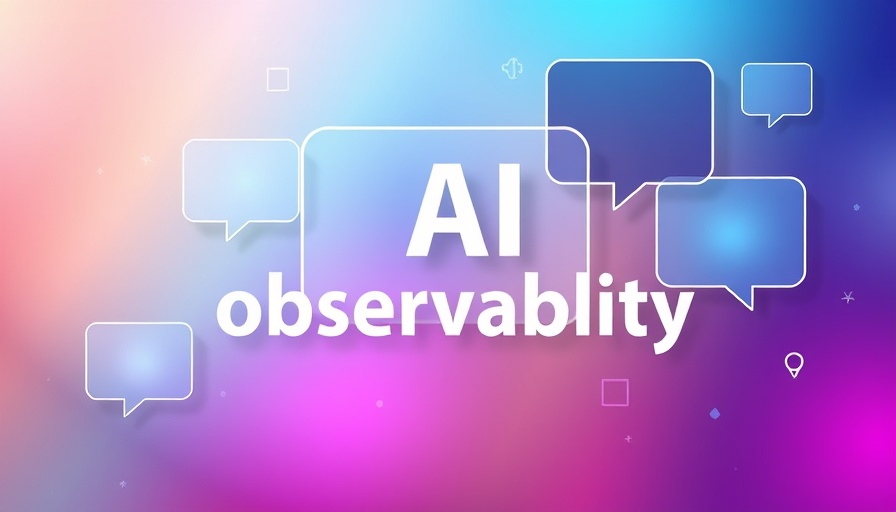
Understanding the Future of Healthcare with AI
The healthcare industry is undergoing a seismic shift thanks to advancements in artificial intelligence (AI). As showcased in the video AI-Powered Clinic: No Human Doctors Needed!, the increasing integration of AI into healthcare processes raises intriguing questions about the future of medicine. The notion of AI replacing human healthcare providers can bring hope for efficiency but also evokes concern about ethical use of AI and patient care.
In AI-Powered Clinic: No Human Doctors Needed!, the discussion dives into the critical role of AI in healthcare, exploring key insights that sparked deeper analysis on our end.
The Vision Behind AI Clinics
AI-powered clinics promise a new age in medical practice, where diagnostics and treatment plans are created by algorithms that learn from vast data sets. This model can potentially lower operational costs and increase accessibility, particularly in underserved regions. By harnessing data analytics, these clinics can effectively identify health patterns and personalized treatment regimens. While the benefits are extensive, one must consider the implications—especially regarding AI and data privacy.
AI and Data Privacy: A Critical Concern
With AI’s ability to analyze sensitive health information, privacy is paramount. The risk of data breaches and unauthorized access to medical records raises ethical concerns. Patients must trust that their information is secure and used responsibly. It’s crucial for AI implementations in clinics to align with established regulations to safeguard personal data.
Ethical Considerations for AI in Healthcare
Beyond data privacy, the ethical use of AI also encompasses the accuracy of AI decisions. Will an algorithm be able to integrate the nuances of patient care that a human doctor would consider? Responsible AI mandates transparency in its decision-making processes. Stakeholders in healthcare must engage in discussions about the ethical implications to ensure AI systems enhance, rather than compromise, the quality of care.
The Role of Government Regulation
As AI continues to permeate the healthcare sector, government intervention may become necessary. Regulatory frameworks need to evolve to address the evolving landscape, focusing on patient rights, data security, and quality of care. Balancing innovation with regulation can empower a future where AI and human doctors coexist, rather than one entirely replacing the other.
Decentralized AI Platforms: A Solution?
A compelling approach to ensuring ethical AI use is through decentralized AI platforms. These allow multiple stakeholders—scientists, clinicians, and patients—to contribute to the AI training process, promoting a more inclusive approach to AI development. By doing so, communities can ensure diverse perspectives are considered, ultimately leading to a well-rounded AI that addresses a broader scope of healthcare needs.
Freedom of Speech and AI's Influence on Healthcare
The integration of AI in healthcare also raises the question of freedom of speech. As AI refers to a myriad of data, ensuring that AI platforms deliver unbiased information becomes vital. Initiatives need to be undertaken to prevent discrimination and uphold cultural sensitivity while fostering a respectful environment. This promotes trust and confidence in the systems driving health decisions.
What’s Next? Predictions for AI in Healthcare
The future of AI in healthcare is promising, but vigilance is essential. As technological cycles accelerate, ongoing discussions regarding AI and government regulation, alongside active community engagement, will play a key role in shaping a responsible and beneficial AI health ecosystem. Businesses and practitioners must remain informed and adaptable to navigate this rapidly changing landscape.
 Add Row
Add Row  Add
Add 




 Add Row
Add Row  Add
Add 

Write A Comment